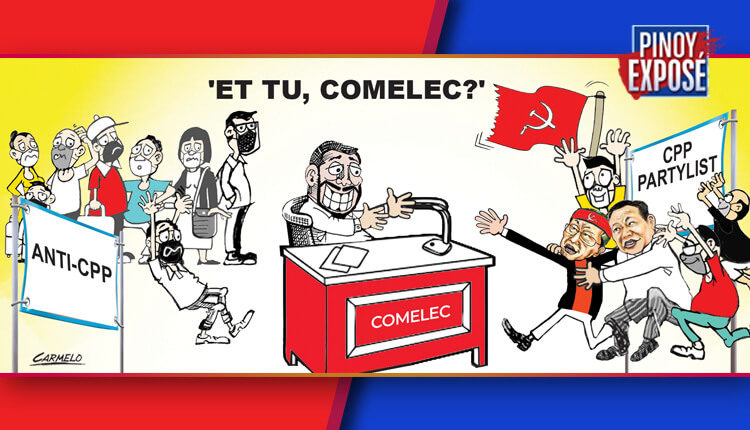THE updated list of accredited partylists allowed to participate in next year’s national elections, as of December 17, 2021, contains 166 groups, according to the Commission on Elections (Comelec).
The partylist system, under the 1987 Philippine Constitution, provides that 20 percent of the available seats in Congress shall be exclusively allocated for partylist representatives, with the remaining 80 percent based on congressional districts’ representation.
In the present 18th Congress, it is composed already of 304 congressmen although the Constitution, under Article 6, provides that its membership shall not be more than 250– but which our not-so-distinguished congressmen easily skirted because of the provision, “unless otherwise fixed by law.” And “fixed” the law they did.
Going by the present number, these 166 groups would be contesting at least 61 available seats for partylist representatives, with the final number to be “computed” by the Comelec, based on existing laws, primarily RA 7941.
That the system has been glaringly and flagrantly violated and abused over the years, is no longer in doubt. Instead of actually addressing the needs and concerns of the truly marginalized sectors of our society, the system has become the bastion of the influential and the very rich among us.
Other than them, the system has also become the “bailiwick” of the anti-democratic and pro-dictatorship elements, particularly the front organizations of the Communist Party of the Philippines, an armed terrorist organization.
In December 2018, in a serious attempt to end the CPP menace, Pres. Duterte issued EO 70, creating the National Task Force to End Local Communist Armed Conflict (NTF-ELCAC).
EO 70 operates under the ‘Whole of Nation/Whole of Government’ (WON/WOG) in addressing our over 5-decades problem with the CPP.
But here’s the rub. While the ‘WONA/WOG’ strategy is very elementary and easy to understand, that is, the fight against CPP subversion of our democracy and way of life is the concern and priority of the entire government and not by just the Executive Department, its simplicity appears entirely lost to other branches of government—the Court, Congress/Senate and the constitutional offices like the Comelec.
Using the ‘separation of powers’ clause in our Constitution, they simply decided to go in their own way, separate and even contradictory to what the Executive Branch aspires to accomplish—to finally free our country from the clutches of endless violence and divisiveness being promoted and being actively pursued by the CPP so that we can, finally, have a “taste” of the ‘democracy’ that we really desire.
In the case of the partylist system, we continue to be baffled by the fact that of the 166 groups allowed by the Comelec to participate next year, included still are the known CPP-created organizations such as Gabriela, ACT-Teachers, Kabataan and Bayan Muna.
Whatever happened to the petitions, particularly against Kabataan and Gabriela, seeking to have them disqualified on the grounds that they are not just “fronting” for the CPP but are actually terrorist-created organizations?
In the case of Gabriela, one wonders as to whether the Comelec even bothered to read the petitions against it filed by the NTF-ELCAC despite having the luxury of nearly 3 years, since 2019 to study and validate them.
Or, is it the Comelec’s way of saying that the WONA/WOG strategy laid down under EO 70 notwithstanding, they don’t simply give a damn because it is a constitutional body unconstrained by the actions of the Executive Branch regardless of what benefit can be derived from them?
The present Senate of course, is “guilty” of the same callous attitude.
Here, we laid bare the real problem that we have: a defective and fragmented democracy where every branch of our government is “free” to decide without a hoot about our future as a nation.



